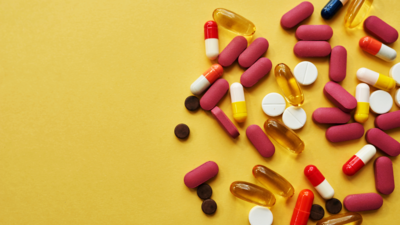
In India, about 27.5 million men and women are suffering from infertility. This incidence is rising mainly because of the adoption of modern lifestyles that contribute significantly to diverse health problems people are facing with reproductive health. The success of IVF has been a cause of joy for many whose reproductive organs were infertile, and it has revitalized such couples’ hopes. However, IVF does provide medical solutions, and there is always the importance of knowing how nutrition steps extraordinarily in enhancing fertility. A proper diet, complemented with some specific vitamins and supplements, can do much for the couple to boost their chances of success in their treatments using IVF.
The role of nutrition during IVF
Nutrition has long been considered an important element in healthy weight management and reproductive health. Nutrition and nutritional balance help to control hormones, improve egg, sperm quality, and prepare the body to respond favorably to IVF treatment. Certain vitamins and supplements have been established to add worth to fertility success rates and are thus essential components in those receiving IVF treatment.
Vitamins and Supplements that can Enhance Male and Female Fertility
Folic Acid: This nutrient is highly effective in preventing neural tube defects, as folic acid is crucial before and while one is pregnant. It supports DNA synthesis and cell division, an activity required for the health of sperm and eggs. Adequate intake of this B vitamin is associated with a higher success rate of conception, hence essential for infertile couples preparing to conceive by IVF.

Vitamin D: Many of the research studies point out that vitamin D is crucial for reproductive health. It plays an important role in the regulation of hormones and is associated with improved egg quality. Women with appropriate levels of vitamin D may have a better IVF outcome. Supplementation in those with a deficiency may be an efficient strategy to improve their
fertility.
Vitamin B12:
This is highly significant in terms of ovulation and fertility treatments. Deficiency could adversely affect health, and, therefore, recommendations to those who are attempting conception would be to consume foods rich in it, such as dairy, eggs, and fortified cereals.
Iron: It promotes healthy ovulation and also helps in decreasing the risk of miscarriage. Lean meat, beans, legumes, and green leafy foods should be added to your diet for the proper reproductive health of a female, especially looking forward to pregnancy.
Vitamin C:
One of the strongest antioxidants that have been found to help improve sperm quality and motility is vitamin C. Citrus fruits, bell peppers, and berries are good sources of vitamin C or supplements in protecting sperm from oxidative stress among men who want to conceive.
Vitamin E:
Vitamin E acts as a guardian for the sperm against oxidative damage, thus enhancing quality and fertility. Rich sources of vitamin E include almonds, sunflower seeds, and spinach. This diet can also support maintaining male reproductive health on track.
5 ways to supplement your diet
Zinc:
It is also required for spermatogenesis, sperm motility, and nutrition. Some of the zinc-rich foods are nuts, seeds, seafood, and other supplements. So men should also consume adequate amounts of such quantities through such foods or supplements for better fertility.
Selenium:
This is an antioxidant that improves the quality and motility of sperm. The best sources of selenium are brazil nuts, eggs, and fertility-boosting male supplements.
Coenzyme Q10:
CoQ10 works to increase the energy-yielding capacity and sperm motility. It’s very helpful to the patients undergoing IVF since it fortifies the energy of the sperm as well as supports the development of the capability of the sperm to swim and fertilize the egg.
Besides all these, antioxidants like Vitamins C, E, and beta-carotene help to reduce oxidative stress, whereas unsaturated fatty acids improve the quality of the embryo. Probiotics increase gut health and the immune system, while L-arginine contributes to improved blood flow and implantation of the embryo.
Dietary Guidelines
Following the instructions to pay attention to diet can also significantly improve a person’s chances of success in the IVF process. Consuming nutrient-rich foods such as whole grains for fiber, leafy greens like spinach and kale, berries richest in antioxidants, fatty fish like salmon and sardines, protein-rich legumes including lentils and chickpeas, and nutrient-rich nuts and seeds such as almonds and sunflower seeds all work to achieve better reproductive health. Also, include healthy fats in your diet, such as avocado and olive oil, to further help with hormone balance and fertility
(Authored by Dr Nishi Singh, Head of Fertility at Prime IVF)
